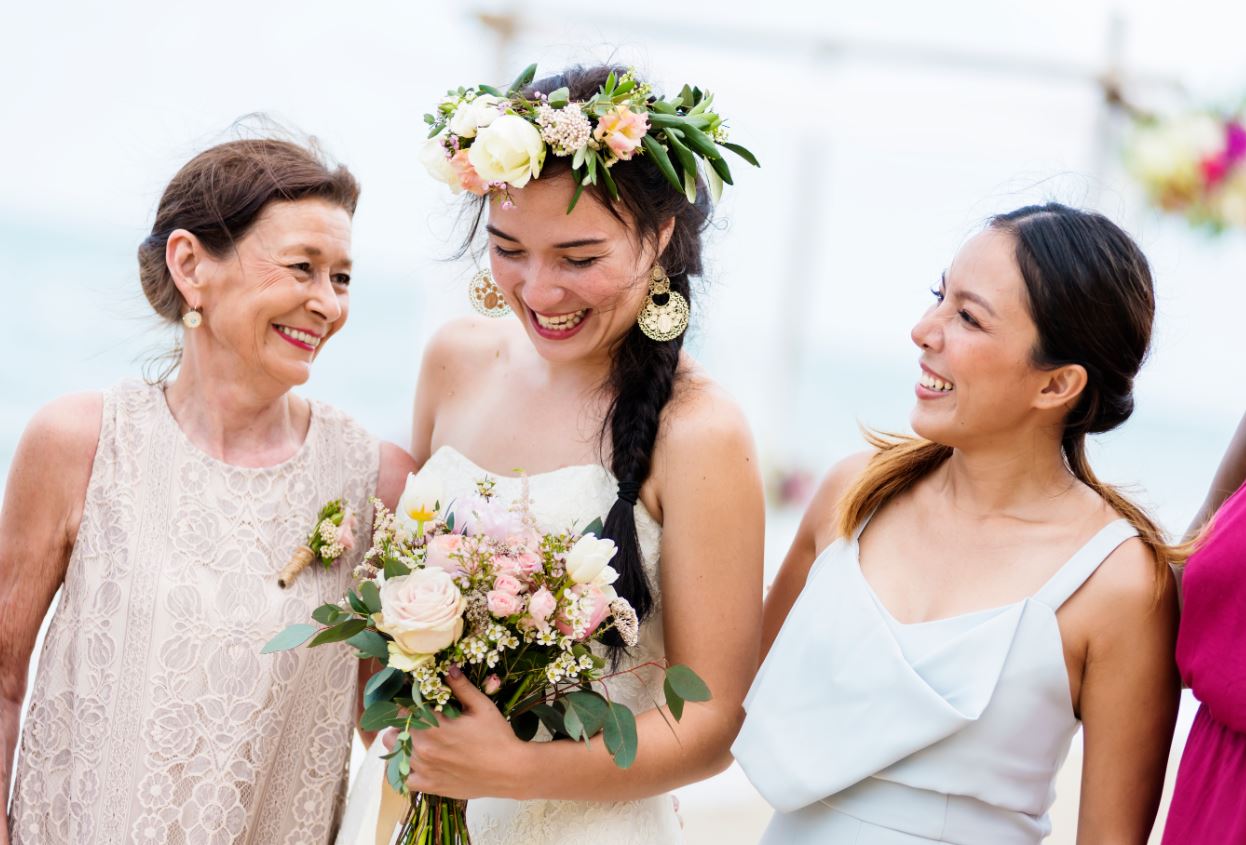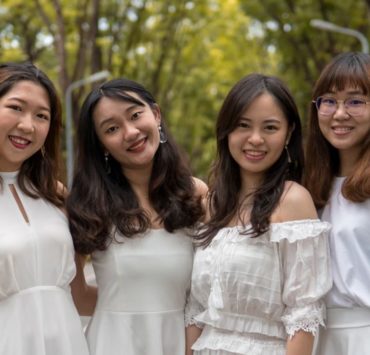One question I often see in bridal websites and bridal forums is how many ninangs and ninongs need to be present in your wedding. As we’ve tackled in our wedding entourage article, you legally only need two to stand in as your principal sponsors. However, if you’ve ever attended a Filipino wedding in the past, you might have noticed that some wedding parties have more than that. Here’s a run-down on how having principal sponsors in weddings work and how to choose the ninongs and ninangs on both sides of the family to become part of this entourage.
What Are Principal Sponsors?
Principal sponsors are members of your wedding entourage. While principal sponsors may not exist in western wedding entourages, principal sponsors are a must in Filipino weddings, regardless if you’re having a church or civil wedding. This is because a valid marriage must have at least two witnesses of legal age to sign the marriage contract. You can forget the best man, maid of honor, bridemaids, and other members of the entourage, and your wedding will still be valid in the eyes of the law. But if you don’t have at least two people to stand as witnesses, your wedding is considered invalid even if you have all the other wedding requirements present.
Ninongs and Ninangs
The criteria to choosing a principal sponsor leaves a lot of room for the bride and groom to choose their principal sponsors. If they want to choose the traditional choice, however, the role should fall to their godparents. These are the ninongs and ninangs that are usually married and are either family members or close friends of the bride and groom’s parents.
So, while the bride and groom could choose someone closer to their age to stand in as principal sponsors, they could legally do so. However, choosing their ninongs and ninangs to stand in as their principal sponsor is the tradition in church weddings because it has an emotional and social meaning behind it. Here’s why.
Why Should I Choose My Godparents As My Principal Sponsors?
First reason is the emotional and symbolic meaning of your principal sponsors. Aside from being the ones to legally sign as witness to your marriage contract, both you and your future spouse’s godparents are expected to serve as your second set of parents, especially when both your parents are no longer with you. Also, following tradition, your principal sponsors should be much older than you and married because they should provide you with guidance and advice in your married life. So, aside from being around your parents’ age, they should ideally be in a marriage you can look up to for guidance.
A second unspoken reason is how the line-up of principal sponsors can say a lot about the wedding’s social status. According to Bride’s Maids and Co., a line-up of sponsors filled with prominent names can be a status symbol for a couple to show how well-connected their families are to celebrities and other popular names.
Choosing Your Principal Sponsors
Remember, the reason for choosing your godparents as your principal sponsors is purely symbolic and sentimental. If you don’t want to go that route, you can still legally pick at least two people over the age of 18. Other than age, there’s no hard requirement in terms of sex, gender, relation (or non-relation) to the bride and groom, and marital status. If one person you pick as your sponsor is married, it’s not necessary to make their spouse a sponsor as well.
But if you’re going for the traditional and sentimental route, here’s what you have to know.
Criteria in Choosing a Ninong and Ninang to be Your Sponsor
Make sure they can provide you with good advice. As much as possible, your ninong and ninang should be married and much older. This is because you’ll want godparents you respect and admire. Ideally, they should be in marriages you and your partner can look up to. And if you have multiple godparents standing in as principal sponsors, they can give you advice on the different aspects of marriage. Maybe you chose one ninong because of how he and his partner raised well-behaved children and want advice in child-rearing. Or, you chose a ninang because you know how she and her husband make financially smart decisions. Whatever the reason for choosing them, you and your partner should be close enough to them so you can come to them for advice any time later in the marriage.
See if they’re available on your wedding day. As much as you want your godparents to be present on your big day, sometimes they may have commitments on their own that prevent them from attending your wedding. As soon as you start planning your wedding, one of the things you should do by the 12-month mark (check out our wedding checklist and timeline!) is choose your bridal party. This is enough time to give them a heads up so they can keep their schedules free during your planned wedding date.
Ask Them Respectfully. While social media has allowed everyone the relative ease of reaching out, some older and traditional godparents might take offense if you ask them to be your sponsor with a simple Messenger message. To be safe, try scheduling lunch or dinner with your chosen sponsor. Ask them during that meeting if they would be willing to stand as one of your principal sponsors and why you want them in your wedding party.
Is There a Limit to the Number of Sponsors I Can Have?
Whether it’s in a courthouse, church, or any other wedding ceremony venue, your wedding won’t be legal unless you have at least two people to stand as witnesses. While couples only need two principal sponsors, small weddings usually have up to 8 sponsors while larger weddings can have as much as 16 sponsors. Technically, there is no hard limit, but some churches may impose a limit on the number of principal sponsors. If there are more, the church might either ask you and your partner to trim down your list or pay extra.

Author: Justine Lubag
Justine loves costumes, puns, horror films, and blue dresses. A literature graduate from the south, she writes online content for a living but is super shy about others reading her fan fiction.



